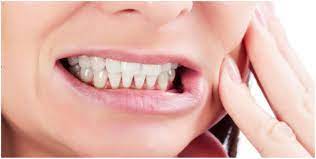If you’re searching for answers to how can I stop grinding my teeth at night, you’re likely dealing with jaw pain, headaches, or worn teeth. Nighttime Teeth Grinding, also known as sleep bruxism, is a common condition that can damage your oral health and disrupt sleep. Fortunately, there are multiple proven strategies to reduce and even eliminate nighttime grinding, especially when personalized to your unique triggers.
- Use of a nightguard or mouth splint to protect teeth
- Stress management techniques to relax the jaw and mind
- Avoiding stimulants like caffeine or alcohol before bedtime
- Maintaining a consistent sleep routine for deeper rest
- Seeking professional dental or medical advice when needed
Understanding the Root Causes of Nighttime Grinding:
Before tackling how to stop grinding, it’s important to understand why it happens. The causes are often a mix of emotional, physical, and lifestyle-related factors.
- Anxiety and stress are leading triggers for sleep bruxism
- Abnormal bite alignment can put strain on jaw muscles during rest
- Sleep disorders, such as apnea, often accompany bruxism
- Medications like antidepressants may list teeth grinding as a side effect
- High intake of caffeine or alcohol increases muscle tension during sleep
Identifying your personal triggers will help guide the most effective treatment plan.
Nightguards and Dental Appliances:
One of the most common and effective answers to how can I stop grinding my teeth at night is wearing a nightguard. These devices prevent damage by creating a protective barrier between the upper and lower teeth.
- Custom-made guards from your dentist offer the best fit and comfort
- Over-the-counter nightguards are more affordable but may be less durable
- Hard acrylic or soft plastic types are chosen based on severity
- Occlusal splints can help adjust the bite and reduce jaw stress
- Guards also reduce muscle strain and improve morning jaw stiffness
Wearing a nightguard doesn’t stop grinding entirely but significantly minimizes its effects.
Stress Reduction and Relaxation Techniques:
Since stress is a top contributor to bruxism, managing your mental state can have a big impact. Implementing calming habits helps relax your body and reduce subconscious tension during sleep.
- Practice deep breathing exercises or meditation before bed
- Create a calming nighttime routine to unwind, such as reading or light stretching
- Reduce screen time in the evening to lower stimulation
- Use aromatherapy or white noise machines to enhance sleep quality
- Seek therapy or counseling if chronic anxiety is present
The calmer your mind, the less likely your body will engage in harmful grinding habits during the night.
Adjusting Daily Habits to Prevent Grinding:
Lifestyle changes can play a major role in preventing nighttime bruxism. Certain daily behaviors either increase tension in the jaw or disrupt sleep cycles, both of which make Teeth Grinding Treatment worse.
- Limit caffeine and alcohol intake, especially after 2 PM
- Avoid chewing gum or biting on hard objects like pens
- Keep hydrated throughout the day to maintain healthy muscle function
- Exercise regularly to release physical tension in the body
- Maintain proper posture to prevent jaw misalignment and neck strain
Small adjustments can lead to big improvements in reducing grinding behavior.
Seeking Professional Evaluation and Treatment:
If self-help strategies aren’t enough, a professional evaluation may uncover deeper causes and provide targeted treatment options. Dentists and medical professionals can recommend personalized solutions based on your needs.
- A dental exam can detect tooth wear patterns and bite issues
- Sleep studies may be suggested to diagnose related disorders like sleep apnea
- Dental corrections such as orthodontic treatment may be recommended
- Botox injections can temporarily relax overactive jaw muscles
- In severe cases, medication may be prescribed to ease muscle activity during sleep
Professional care ensures that your treatment is safe, effective, and tailored to your situation.
By identifying your triggers and combining home remedies with professional support, you’ll be well on your way to answering the question: how can I stop grinding my teeth at night? Not only can you protect your teeth, but you’ll also enjoy better sleep and improved overall health. Let me know if you’d like a version of this article formatted for a blog, brochure, or educational handout!





Comments